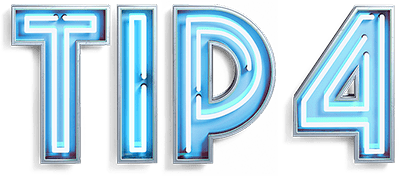
Collection Agencies in Canada Debt Collection Information, Tips & Advice
How Collection Agencies Work
When your business has trouble collecting overdue accounts receivable, the repercussions can be severe. Cash flow is impaired, and it can become hard or impossible to meet your own financial obligations to payroll, rent, the bank and vendors. Sometimes you can handle the collection issue in-house, but even the biggest companies with Accounts Receivable teams encounter problems at times.
Collecting delinquent accounts is a job for professionals. That’s where collection agencies come in: they collect overdue bill payments all day long, every day. As debt collection specialists, a good collection agency is a well-orchestrated team of experts, adept at tracking down debtors, finding solutions, leveraging third-party psychology and negotiating payment.
A credit-reporting collection agency is uniquely positioned to collect debt, because it reports submitted accounts to national (and in rare cases even specialized regional) credit bureaus. By doing so, the collection agency directly impacts the debtor's credit record until the debt is reported as paid.

Don’t wait too long.

The #1 cause of bad debt is procrastination. If an account is past the due date, don’t accept stall tactics. Each Canadian province has its own Statute of Limitations, and most are just 2 years. And in the USA each state also has distinct limitations on debt collection. The statistical likelihood of collecting diminishes with every passing day. Use this Debt Recovery Calculator to see the value of money owed to you in real-time.

Document everything.

If you have a solid contract and good supporting paperwork, collecting debt is much easier. You or your collection agency will have a much higher success rate with the right documentation – and fewer accounts will go to collections!

Defend what’s yours.

You deserve to be paid on time. Whether you sell physical products or time and expertise, you have a time or event-specific contract with the customer. Don’t be bullied or manipulated into waiting longer while the debtor pays higher-priority suppliers – or until the debt is not collectible.

Never Rush to court.

It‘s usually a mistake to threaten a debtor with court action. It takes many months for a civil lawsuit to proceed, and you will commit to further lawyer fees and court costs. And even if you are granted a court judgment, you must still collect on it!

Don’t be overly combative.

No matter how frustrated you become, never resort to threats or insults. A delinquent debtor needs motivation to put you ahead of other obligations, and conflict is usually counterproductive. A great collection agency works to preserve relationships and your brand.

What Kind of Businesses Use Collection Agencies?
Collection agencies are used by banks, telecommunication companies, retail chains, manufacturers, and businesses of every size to collect on overdue accounts. Most Accounts Receivable Managers use a collection agency to recover outstanding payments.
There are two major categories of debt collection accounts:
Commercial Debt CollectionCollecting money owed by one business to another.
Consumer Debt CollectionCollecting money owed by individuals to a business.
Any size of business can use a collection agency, often for any amount of debt. If a friend owes you $50 for a sports bet, a collection agency is not a fit for you. But for small businesses, landlords or mega-corporations, it is usually the right choice. Even many law firms send their overdue billings to collections!

How Do Collection Agencies Get Paid?
Most collection agencies in Canada work on a no payment, no fee basis. That means as the client, you don’t incur any costs unless an overdue account is recovered. The collection agency is highly leveraged to work quickly and efficiently for you, because they are paying all associated costs up-front, and will take a loss any time you are not paid.
Commission structures vary by agency, and typically range from 25 to 30 percent for the majority of commercial accounts, and more for high-risk debt.
The very best collection agencies have in-house legal departments, which they can use to get you paid when every other avenue has been exhausted. Only a small percentage of accounts should end in litigation, and in such cases a good collection agency is equipped to minimize legal costs. If an account goes to court, fees normally apply, and the choice should be yours whether to proceed or not.

Finding a Good Collection Agency
As in any industry, there are good collection agencies, and not-so-good ones.
The best way to choose a top-performing collection agency is to look at reviews from people like you. Pay less attention to those posted by debtors, who are generally unhappy about being asked to meet their obligations, although a large number of these can signal poor handling of accounts or insufficient training. Look for references to quick debt recovery, excellent customer service and long-term relationships.
The very best collection agencies will have a solid BBB rating as well. In the debt collection business, it takes substantial effort to effectively manage complaints, and weaker operations don’t make the investment.
Ask to visit a prospective collection agency in person if you have time, and see how the organization is run. You are entering into a business relationship, and it’s worth the effort to choose a great debt collection partner!
In the USA, all the above guidelines apply. The best US collection agencies not only adhere rigidly to the Federal Trade Commission’s Fair Debt Collection Practices Act (FDCPA) but go beyond minimal industry requirements. Wherever you grant credit, vet prospective collection partners cautiously and choose one that is ethical, proficient and experienced!